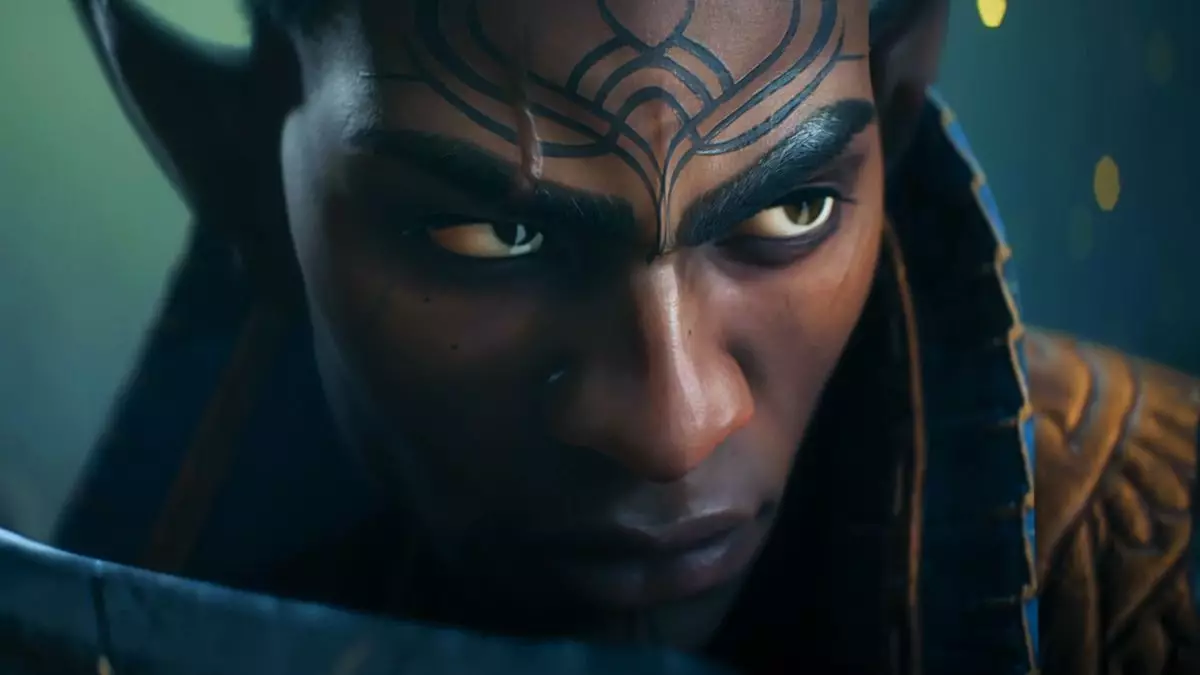The release of Dragon Age: The Veilguard was anticipated as a significant milestone for BioWare, a studio with a rich legacy in role-playing games (RPGs). However, just three months post-launch, the reality appears starkly different from the initial hopes pinned on this title. Despite garnering positive reviews from critics, with many praising it as a return to form for BioWare, the sales figures revealed by EA paint a troubling picture. The game reportedly fell short of expectations, experiencing a staggering sales drop of nearly 50%. For a franchise that has historically thrived on storytelling and deep character development, such numbers are disheartening.
During a recent earnings call, EA’s CEO Andrew Wilson candidly acknowledged the lackluster performance of Dragon Age: The Veilguard. His comments emphasized the disconnect between critical acclaim and commercial viability in today’s competitive gaming market. While the game was well-received by those who played it, Wilson noted that it failed to “resonate with a broad enough audience.” This statement echoes a growing concern within the industry: the evolving landscape of gaming where blockbuster titles must not only shine in quality but also capture the imagination of a diverse player base.
Chief Financial Officer Stuart Canfield further echoed this sentiment, describing the disappointment as reflective of a changing industry. The once-reliable formula of blockbuster storytelling, which had been a hallmark of EA’s approach to beloved franchises, appears inadequate to navigate today’s gaming environment. Canfield’s admission that resources may need to be reallocated signifies a potential shift in strategy for EA, as they look to adapt to new consumer expectations and market dynamics.
For longtime fans of the Dragon Age series, the news of The Veilguard’s commercial struggles comes as a blow, especially alongside reports of layoffs within BioWare. The studio’s reputation has been built on crafting engaging narratives and immersive worlds, and many had hoped The Veilguard would restore some of that lost glory. Reviews praising it as one of the best RPGs of 2024 amplified the dissonance between critical praise and commercial performance, raising questions about the studio’s direction and leadership under the mounting pressures from EA.
The layoffs and financial reports, juxtaposed with the triple-A production budget typically associated with a Dragon Age title, illustrate the precarious balance that must be maintained within the industry. It puts into perspective the immense challenges facing not only BioWare but also many developers who either aim to innovate or cling to traditional narratives in an increasingly demanding gaming market.
As Dragon Age: The Veilguard reflects both the glory days and the current struggles of BioWare, it raises important questions about the future of the franchise and the studio itself. Just as players evolve in their expectations, so too must developers adapt to stay relevant. While the core essence of what has made Dragon Age a beloved series remains intact, EA’s commentary suggests a critical juncture ahead.
The challenges faced by The Veilguard serve as a sobering reminder of the volatility in the gaming industry. Moving forward, BioWare will need to engage with their fanbase effectively, innovate thoughtfully, and navigate an increasingly complex landscape if they wish to reclaim their stature. The path forward is laden with uncertainty, but it is imperative for BioWare to learn from these experiences and harness them into future endeavors that can reconnect with a wider audience.

